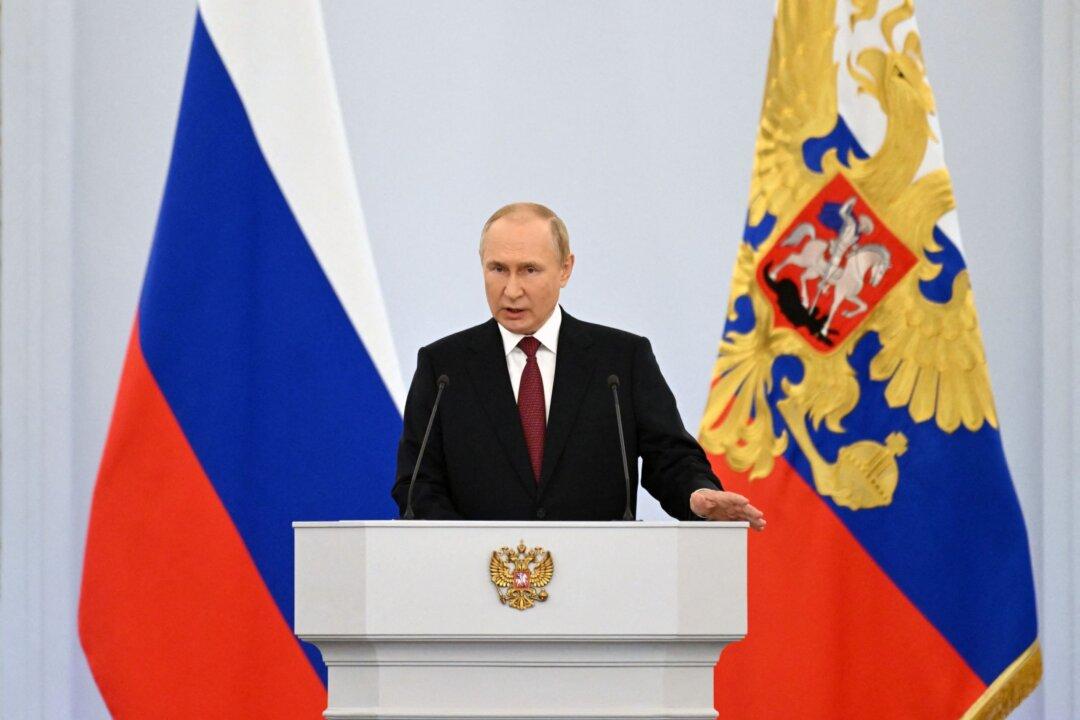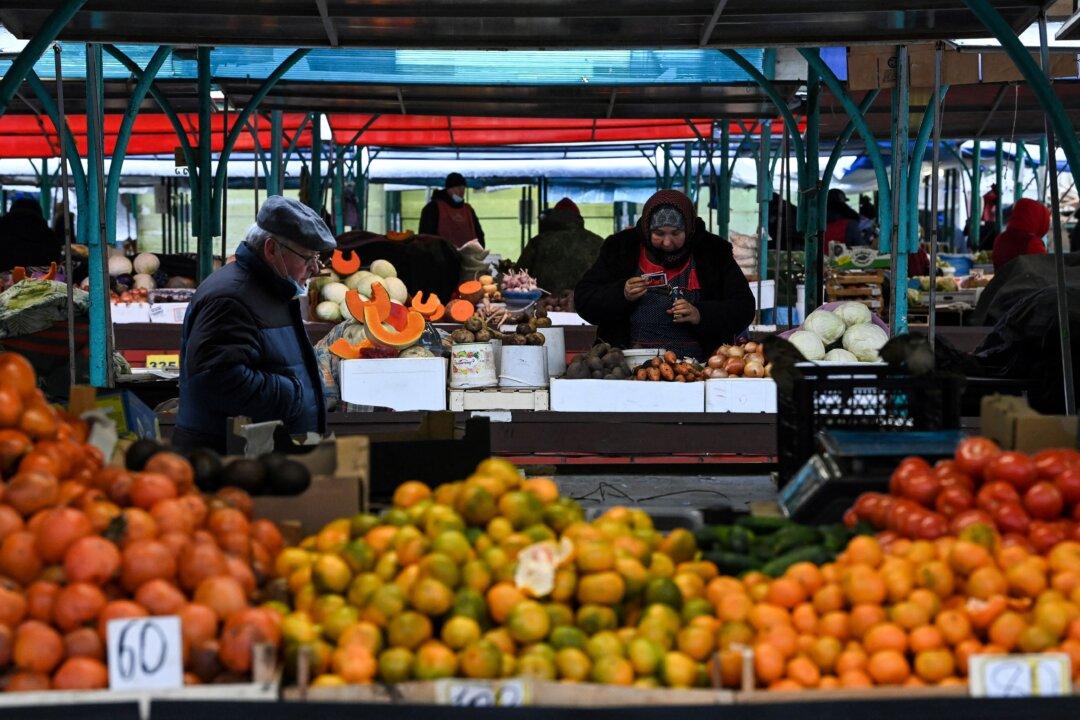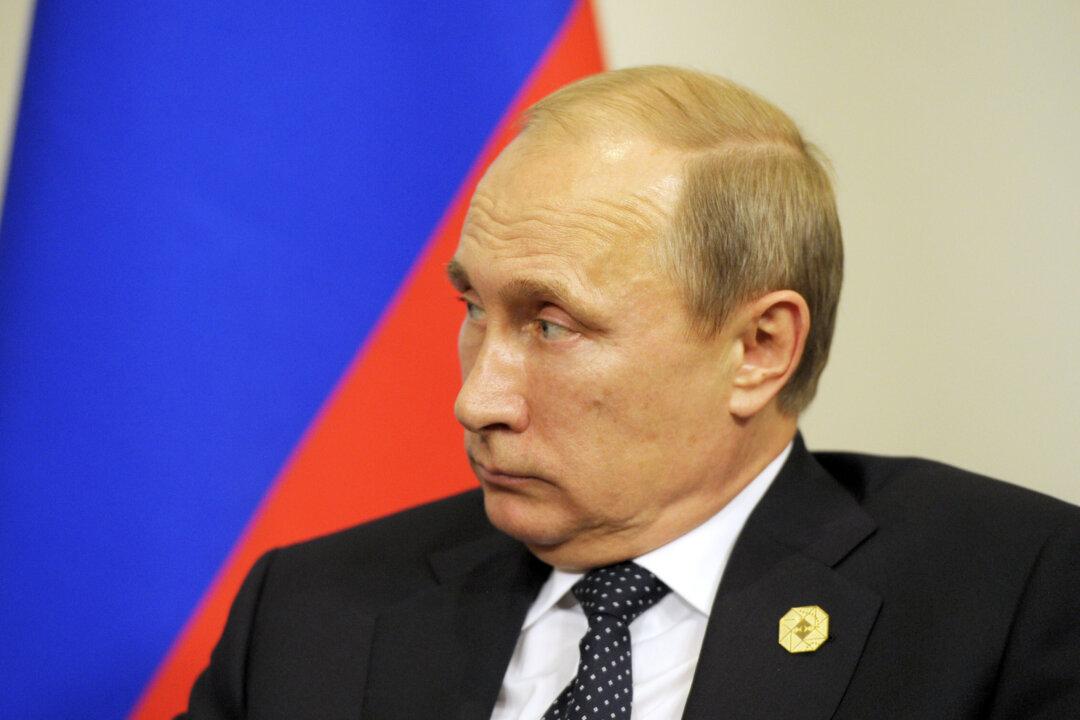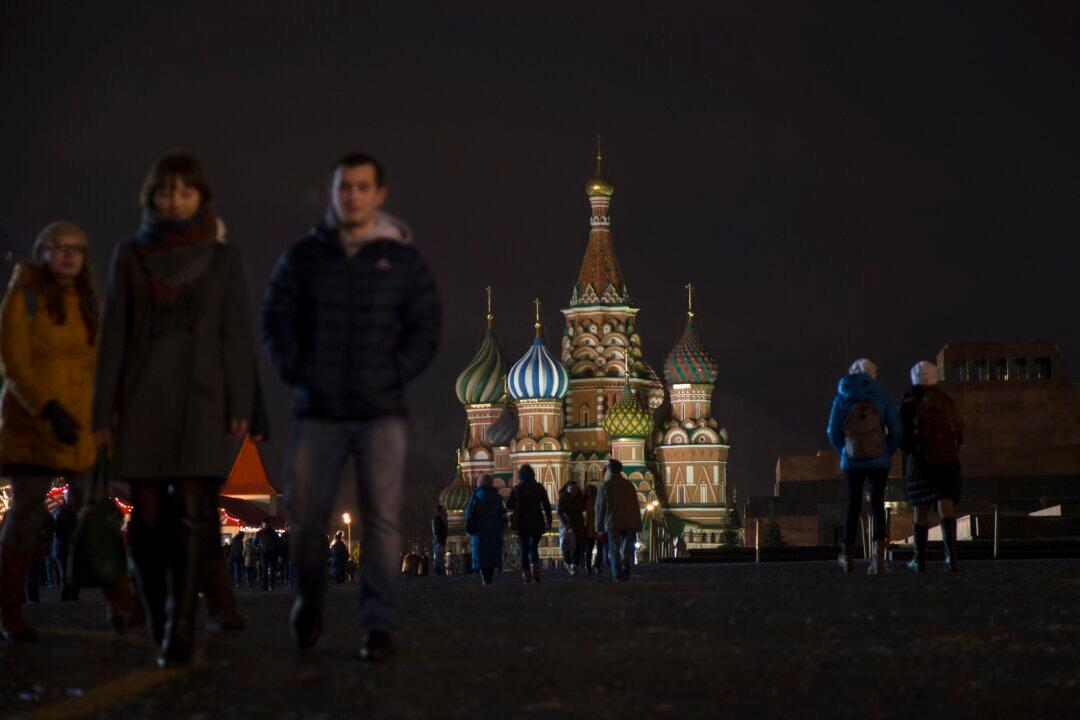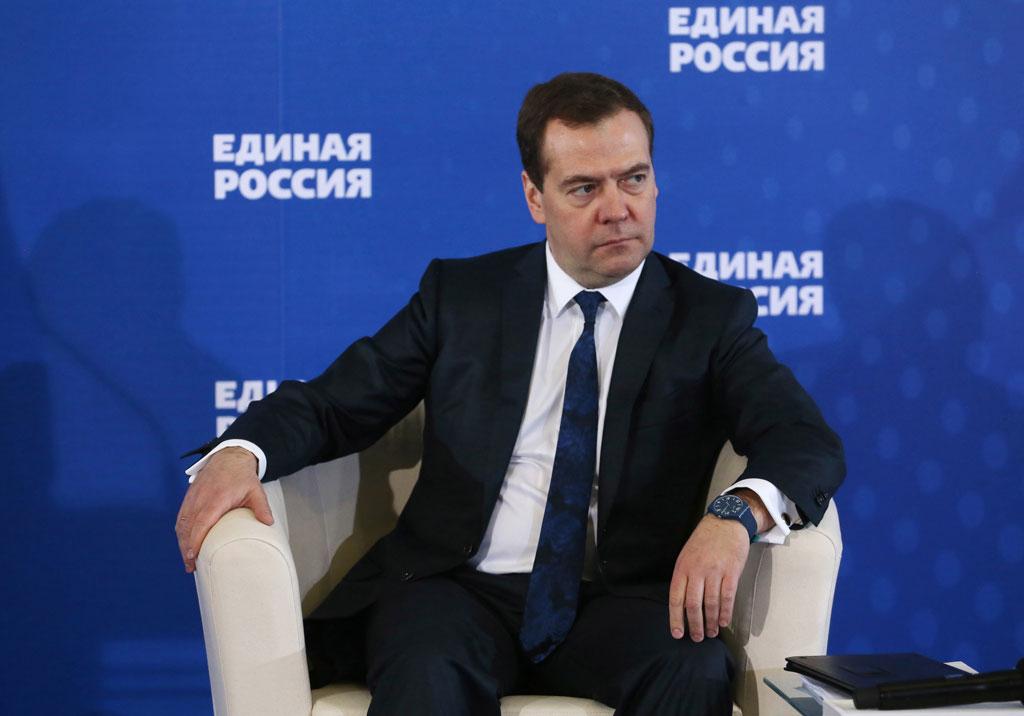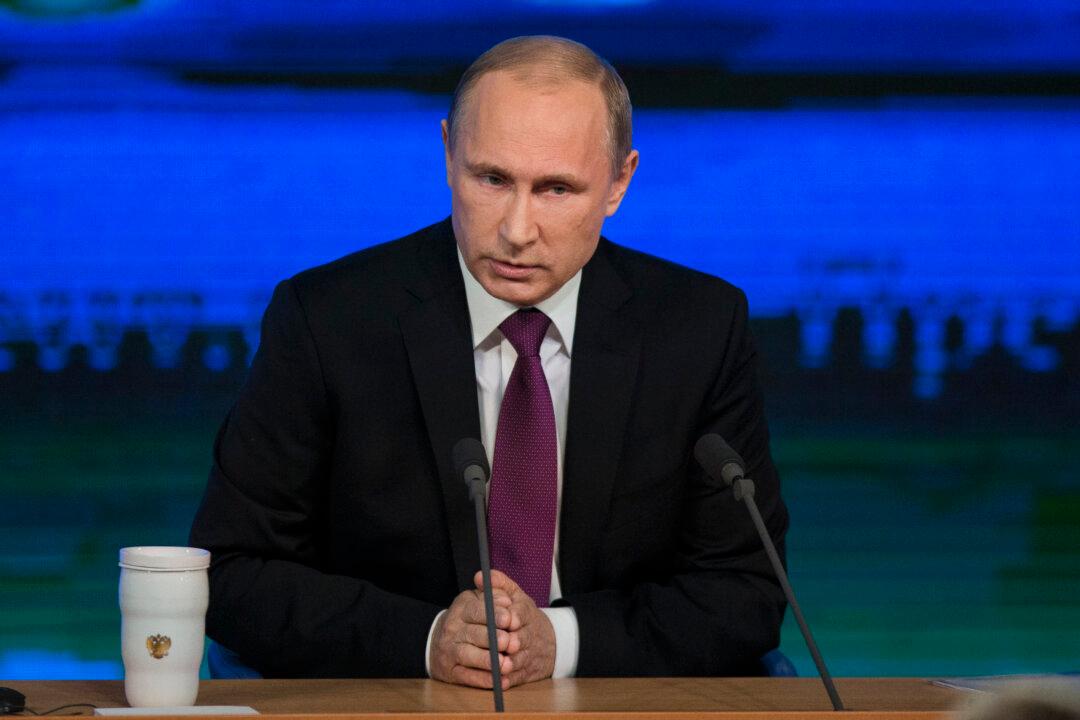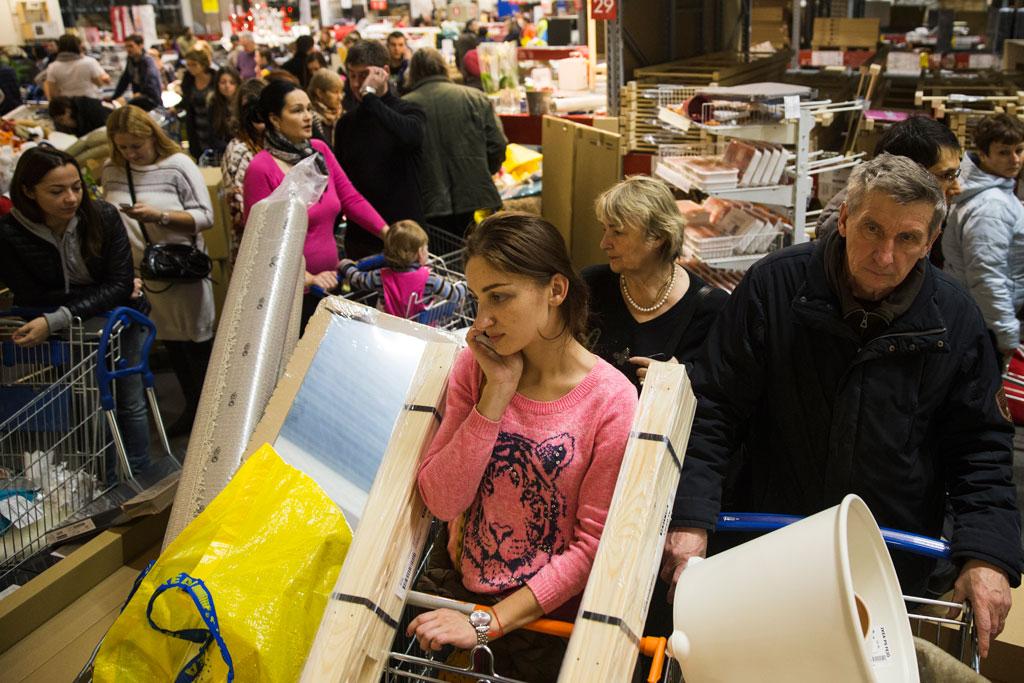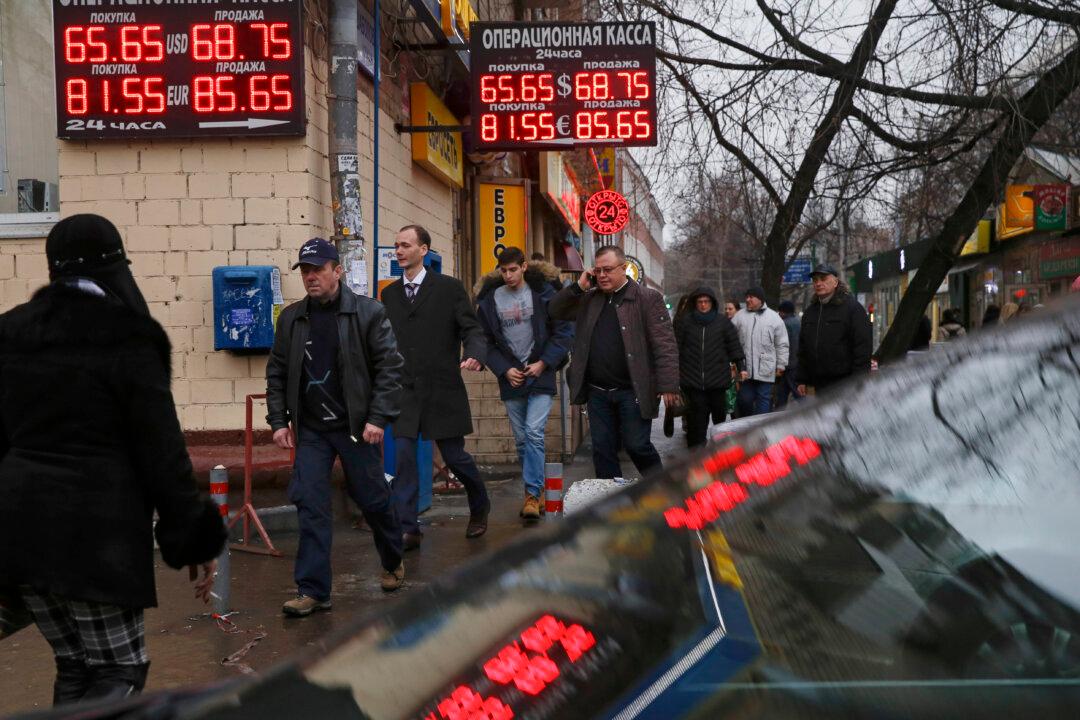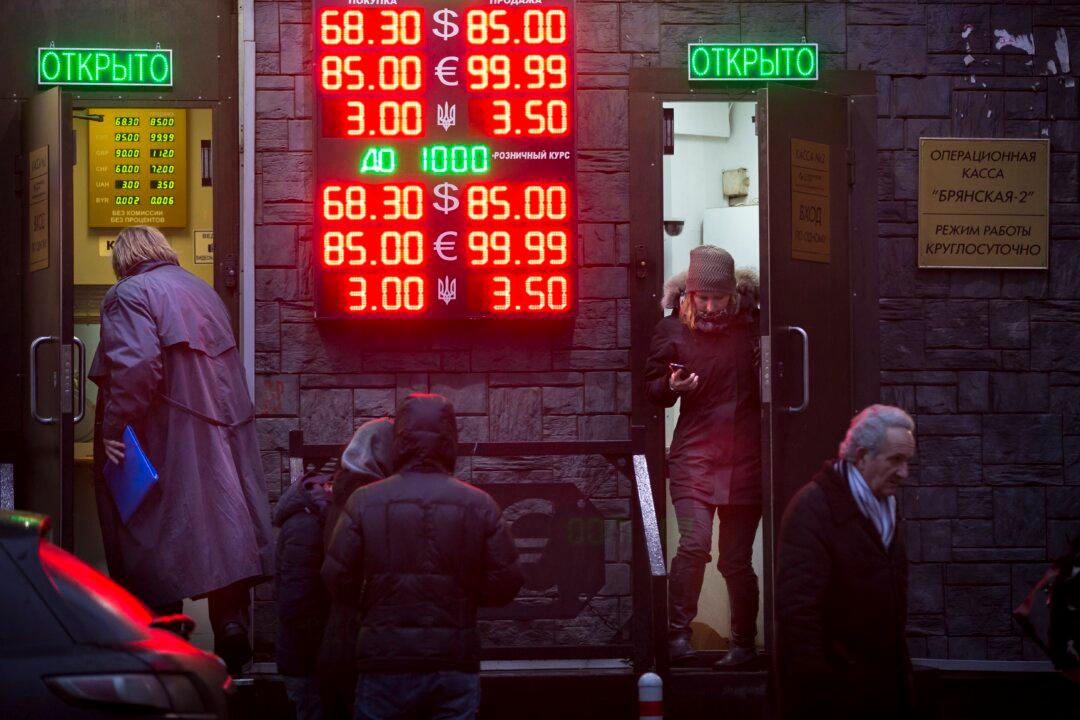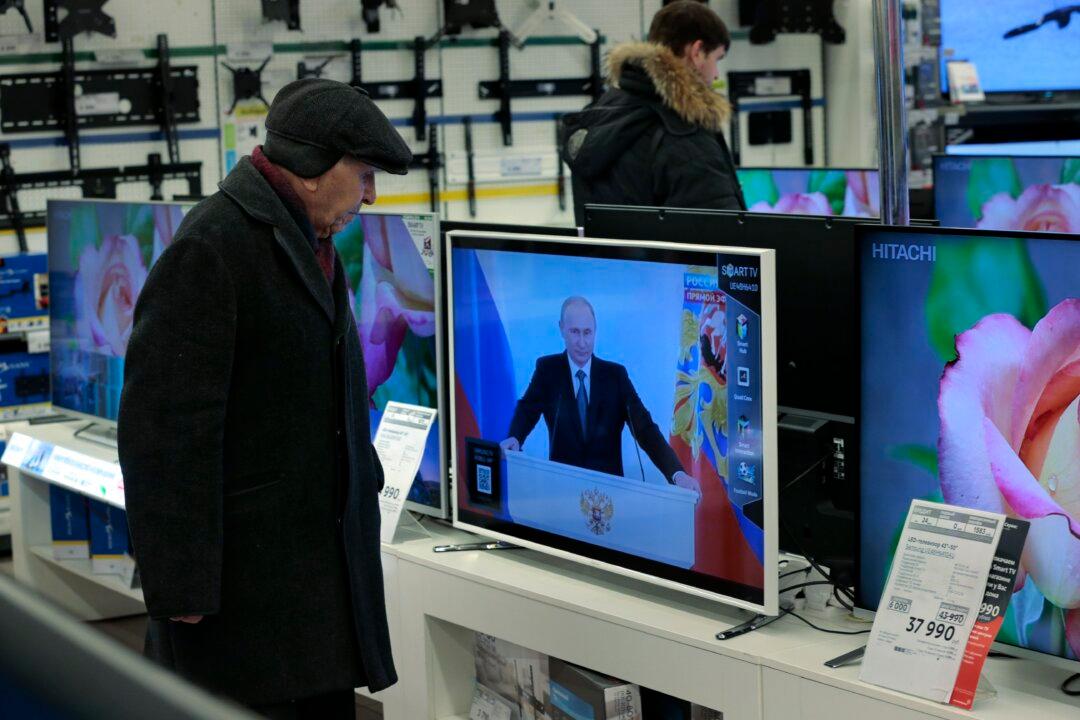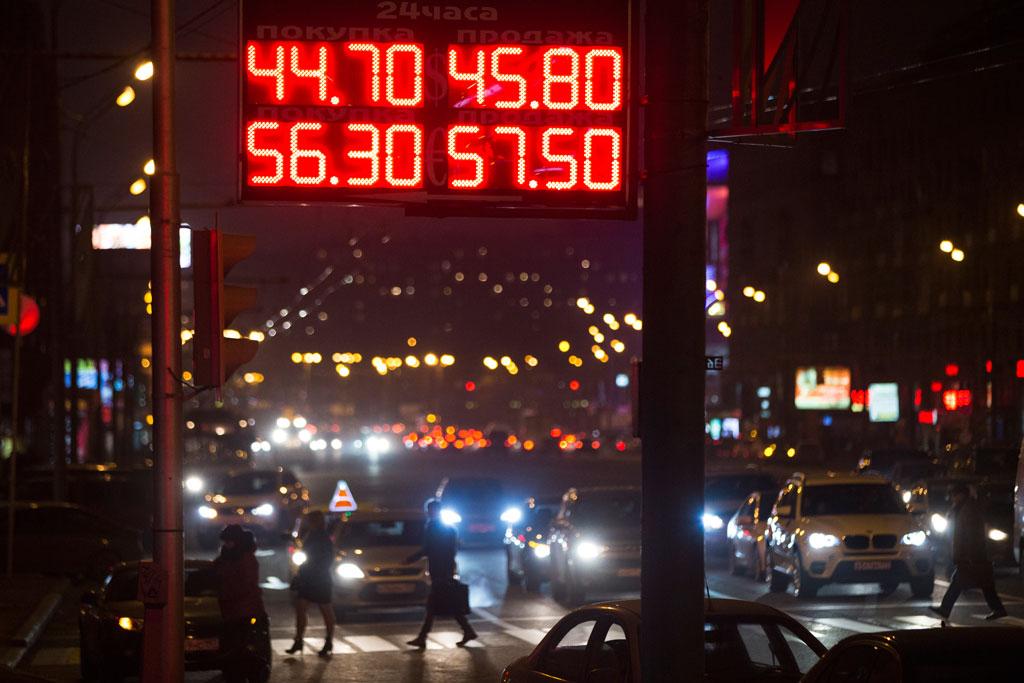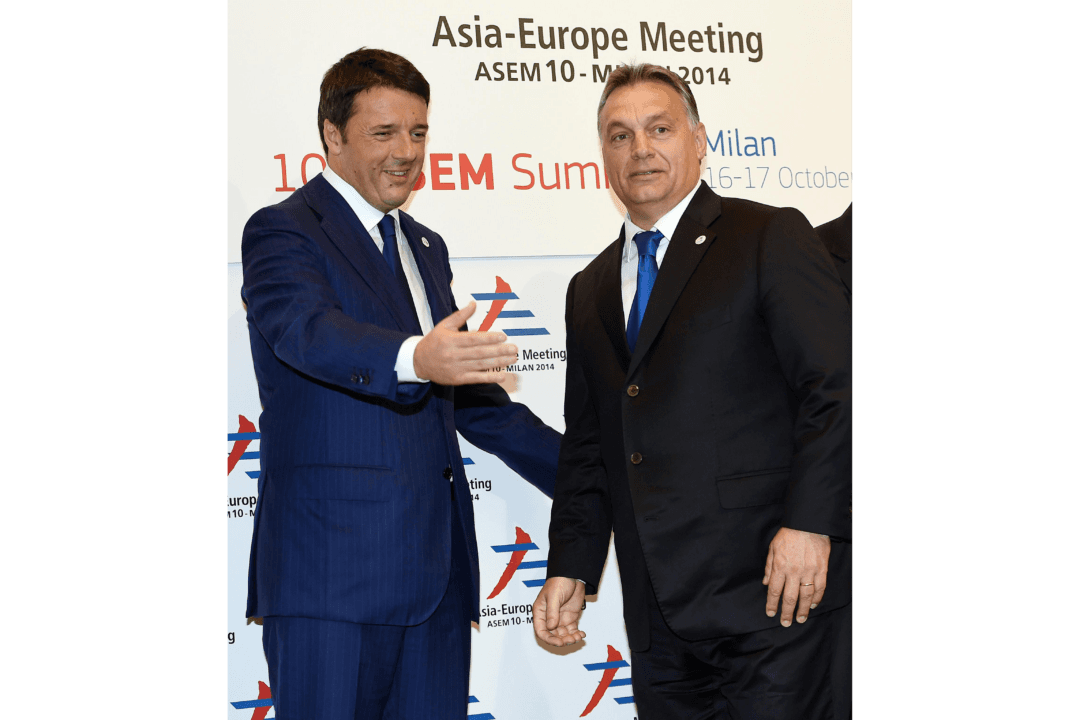Focus
Russian economy
LATEST
10 Signs (& Causes) Russia’s Economy Is in Serious Trouble
A confluence of forces have besieged the former communist country, creating a perfect economic storm. The ruble is tumbling at an alarming rate, but that’s not all, here are some of the factors.
|
Russia Offers to Help Firms With Foreign Debts
With inflation showing clear signs of picking up, Russia’s central bank said Wednesday it will look to help companies with their foreign debts.
|
Analyzing Russia’s Economic Crisis
Stratfor Vice President of Global Analysis Reva Bhalla and Founder George Friedman discuss the potential fallout from Russia’s worsening economy.
|
Putin Blames West for Russia’s Economic Crisis
Russian President Vladimir Putin insisted the West was trying to destroy Russia, but admitted oil and gas prices were also a factor in its economic crisis.
|
Russians Rush to Shop Before Falling Ruble Raises Prices
Russian consumers flocked to stores, frantically buying to pre-empt price rises following the staggering fall in the value of the ruble over recent days.
|
Deciphering Putin’s Speech on Russian Economy
Russia will defend its geopolitical interests, President Vladimir Putin warned Thursday as he promised economic reforms to pull his country back from the brink of recession. But Putin’s patriotic bluster and vague promises did little to assuage real fears that Western sanctions, plummeting oil prices and a collapsing ruble are crippling Russia’s economy.
|
Western Sanctions, Ruble Crash Hit Russians Hard
Oyster Bar built a thriving business serving mollusks to well-heeled Muscovites. Then came Western sanctions, and the restaurant was forced to rechristen itself this fall. Today, it serves up burgers and pizza under a new name: No Oyster Bar.
|
Putin Overestimates Russia’s Economic Strength
In any kind of conflict, it’s always good to hear the other side. German TV station ARD gave Russian President Vladimir Putin 30 minutes of airtime Sunday.
|
Sanctions on Russia Will Backfire on the EU and the US
Sanctions against Russia are undoubtedly having a negative effect on the Russian economy and on the political climate in the country. But they are also negatively affecting both the U.S. and the European economies, which, particularly the latter, are only now showing some signs of improvement.
|
Who Will Reap Rewards From Russia Farm Sanctions?
The Russian ban on the imports of some agricultural products from the US, the European Union, Australia, Canada and Norway has sparked much debate over the likely impact on American and European farmers and on the potential windfall for Brazil as it takes up the slack. But our research has revealed that other lucky countries are well positioned to outdo the giant from South America as the spoils are divvied up
|
10 Signs (& Causes) Russia’s Economy Is in Serious Trouble
A confluence of forces have besieged the former communist country, creating a perfect economic storm. The ruble is tumbling at an alarming rate, but that’s not all, here are some of the factors.
|
Russia Offers to Help Firms With Foreign Debts
With inflation showing clear signs of picking up, Russia’s central bank said Wednesday it will look to help companies with their foreign debts.
|
Analyzing Russia’s Economic Crisis
Stratfor Vice President of Global Analysis Reva Bhalla and Founder George Friedman discuss the potential fallout from Russia’s worsening economy.
|
Putin Blames West for Russia’s Economic Crisis
Russian President Vladimir Putin insisted the West was trying to destroy Russia, but admitted oil and gas prices were also a factor in its economic crisis.
|
Russians Rush to Shop Before Falling Ruble Raises Prices
Russian consumers flocked to stores, frantically buying to pre-empt price rises following the staggering fall in the value of the ruble over recent days.
|
Deciphering Putin’s Speech on Russian Economy
Russia will defend its geopolitical interests, President Vladimir Putin warned Thursday as he promised economic reforms to pull his country back from the brink of recession. But Putin’s patriotic bluster and vague promises did little to assuage real fears that Western sanctions, plummeting oil prices and a collapsing ruble are crippling Russia’s economy.
|
Western Sanctions, Ruble Crash Hit Russians Hard
Oyster Bar built a thriving business serving mollusks to well-heeled Muscovites. Then came Western sanctions, and the restaurant was forced to rechristen itself this fall. Today, it serves up burgers and pizza under a new name: No Oyster Bar.
|
Putin Overestimates Russia’s Economic Strength
In any kind of conflict, it’s always good to hear the other side. German TV station ARD gave Russian President Vladimir Putin 30 minutes of airtime Sunday.
|
Sanctions on Russia Will Backfire on the EU and the US
Sanctions against Russia are undoubtedly having a negative effect on the Russian economy and on the political climate in the country. But they are also negatively affecting both the U.S. and the European economies, which, particularly the latter, are only now showing some signs of improvement.
|
Who Will Reap Rewards From Russia Farm Sanctions?
The Russian ban on the imports of some agricultural products from the US, the European Union, Australia, Canada and Norway has sparked much debate over the likely impact on American and European farmers and on the potential windfall for Brazil as it takes up the slack. But our research has revealed that other lucky countries are well positioned to outdo the giant from South America as the spoils are divvied up
|

